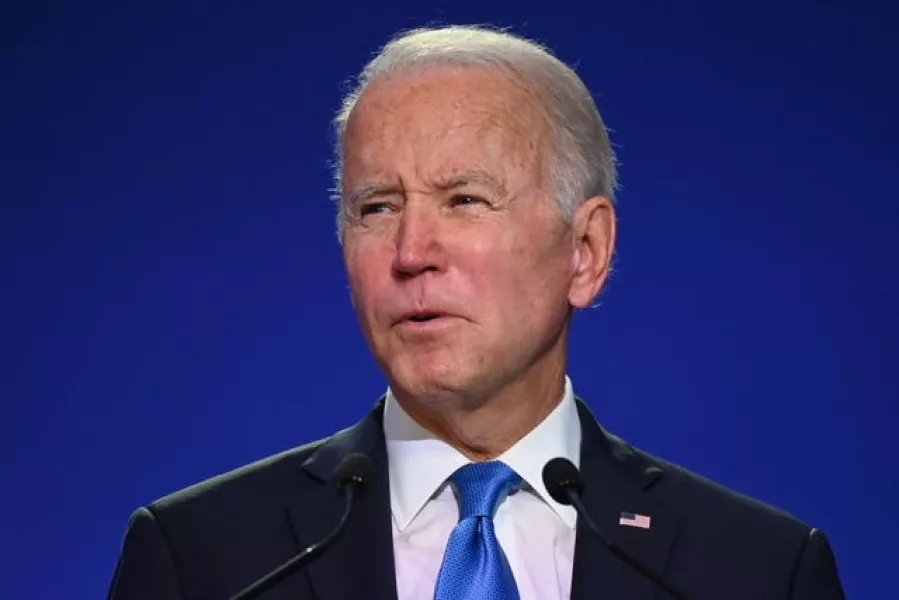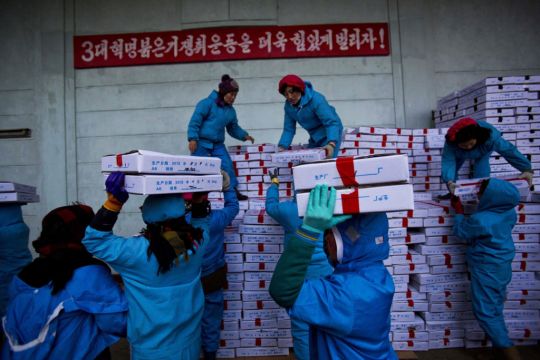China and Russia are urging the UN Security Council to end a host of sanctions against North Korea ranging from the export of seafood and textiles to the cap on imports of refined petroleum products and the ban on its citizens working overseas and sending home their earnings.
A draft resolution circulated to council members and obtained on Tuesday by the Associated Press stresses the economic difficulties in North Korea and says these and other sanctions should be lifted “with the intent of enhancing the livelihood of the civilian population.”
The Security Council initially imposed sanctions on North Korea after its first nuclear test in 2006 and made them tougher and tougher in response to further nuclear tests and an increasingly sophisticated ballistic missile programme.
Former UN ambassador, Nikki Haley, said in 2018 that the sanctions had cut off all North Korean exports and 90% of its trade and disbanded the pool of workers whom North Korea sent abroad to earn hard currency.

The draft resolution expands on a similar resolution Russia and China had circulated in December 2019. It faced opposition from Western nations when it was discussed and was never formally introduced at the council for a vote.
Several UN diplomats, speaking on condition of anonymity because the draft has not been made public, indicated it would likely face a similar uphill struggle today, pointing to North Korea’s continuing violations of UN sanctions.
The US Mission to the United Nations said North Korea has failed to comply with sanctions on its nuclear and ballistic missile programmes and the Biden administration “remains committed to the sanctions regime” and calls on all member states to enforce the measures.
On October 19, North Korea fired a newly developed ballistic missile from a submarine in its fifth round of weapons tests in recent weeks, all of which violated UN sanctions.
It was the North’s first underwater-launched test since October 2019 and the highest-profile test since President Joe Biden took office in January.
The China-Russia draft resolution makes no mention of the missile tests. Instead, it notes that the North has refrained from conducting nuclear tests since September 2017, has kept to a moratorium on further nuclear tests and test launches of intermediate-range and intercontinental missiles from April 21 2018, and has taken additional denuclearisation measures since.
The proposed resolution underscores “the necessity to respect the legitimate security concerns of the DPRK (North Korea) and ensure the welfare, inherent dignity and rights of people in the DPRK,” using the initials of North Korea’s official name, the Democratic People’s Republic of Korea.
It reaffirms that UN resolutions “are not intended to have adverse humanitarian consequences” and notes “the serious impact of sanctions and the COVID-19 pandemic” within the country.
North Korea is struggling to deal with soaring prices of goods and shortages of medicine and other essential supplies that have accelerated the spread of water-borne diseases such as typhoid fever. The country has yet to report any cases of the coronavirus though experts have questioned its claim of a perfect record.
The China-Russia draft calls on all UN member nations to intensity their efforts to provide humanitarian assistance, “including but not limited to food, fertiliser and medical supplies,” and to provide goods, materials, technology and financial services needed by North Korea to combat Covid-19, improve livelihoods and develop the economy.
The draft resolution would lift a ban on North Korea importing some industrial machinery and transport vehicles used to build infrastructure that cannot be diverted to the country’s nuclear and ballistic missile programmes.
South Korea, which has expressed a desire for engagement with the North within the boundaries of the UN sanctions, did not immediately react to China and Russia’s proposals for lifting sanctions on the North.







